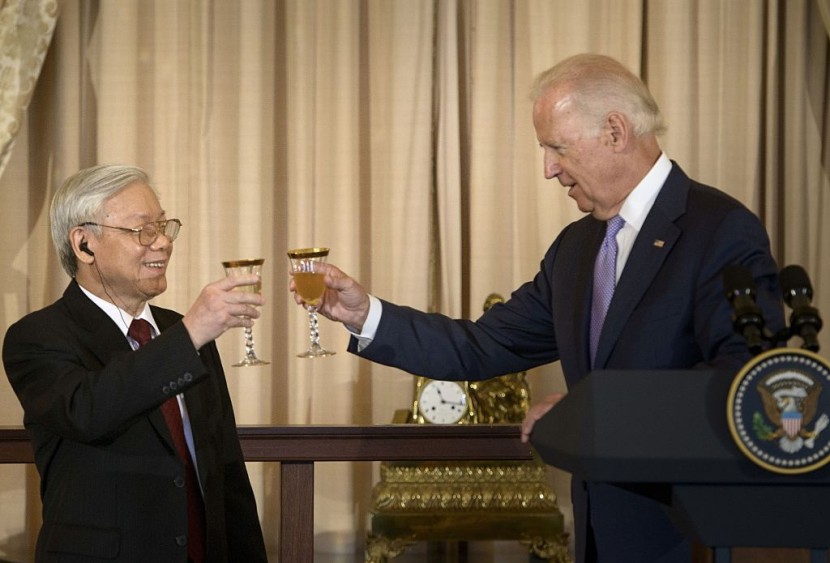
United States President Joe Biden forged a strategic partnership with Vietnam following a meeting prompted by China's continued rising influence within the region.
The recent discussions have brought two historical foes closer together than ever over shared concerns about Beijing's rising ambitions. Biden made the landmark visit to Hanoi when Vietnam's Communist Party leadership formally raised the nation's ties to the US to the highest level in its diplomatic hierarchy.
US-Vietnam Relations
The American president said the unprecedented breakthrough marks the beginning of "even a greater era of cooperation" and comes a half-century after US troops withdrew. During a news conference following a meeting with the general secretary of the Community Party of Vietnam, Nguyen Phu Trong, Biden spoke about the situation.
The American president said they can trace a 50-year arc of progress in the relationship between the two countries. Biden added that the situation marks a new elevated status that will be considered a force for prosperity and security in "one of the most consequential regions in the world," as per the New York Times.
Despite Biden nor Trong directly citing China during their public speeches, it was still a relatively important subtext for the move as the American president is working to establish a network of partnerships within the region to counter Beijing's aggressive action.
In the last few months, Biden has expanded cooperation with various nations, including Australia, India, and the Philippines. He has also brought the leaders of Japan and South Korea together at Camp David, where they sealed a three-way alliance Washington has been having trouble achieving.
On Sunday, Biden said that the United States is a Pacific nation and that Washington will not go anywhere, which was a statement made to put China on notice. However, when asked by reporters, the American president denied any hostile intent with his words, rejecting a new Cold War in the Indo-Pacific region.
Strategic Partnership
Biden's visit to Hanoi came as trade and investment ties between the two countries have steadily been growing, and a long-simmering territorial dispute between China and Vietnam is raising tensions in the South China Sea, according to Inquirer.
On Monday, executives from Google, Intel, Amkor, Marvell, GlobalFoundries, and Boeing were expected to meet Vietnamese tech executives and US Secretary of State Antony Blinken in Hanoi to highlight the Asian nation's growing importance as a "friendshoring" destination for US technology companies.
Last year, Vietnam's exports to the US increased by 13.6%, rising to $109.39 billion, led by shipments of garments, shoes, smartphones, electronics, and wooden furniture. The US president's visit to Hanoi also comes nearly five decades after the end of the Vietnam War between the Soviet-backed Communist government of North Vietnam and South Vietnam's U.S.-backed regime.
For months, Washington has been pushing their plan to elevate their relations as officials said that the focus of the meeting was about semiconductors and critical minerals. The American government sees the Southeast Asian manufacturing dynamo as a key country in its strategy to secure global supply chains from China-related risks, said Rappler.
Related Article: G20 Summit: Delhi Police Website Hacked by Pakistan Hackers
© 2025 HNGN, All rights reserved. Do not reproduce without permission.








